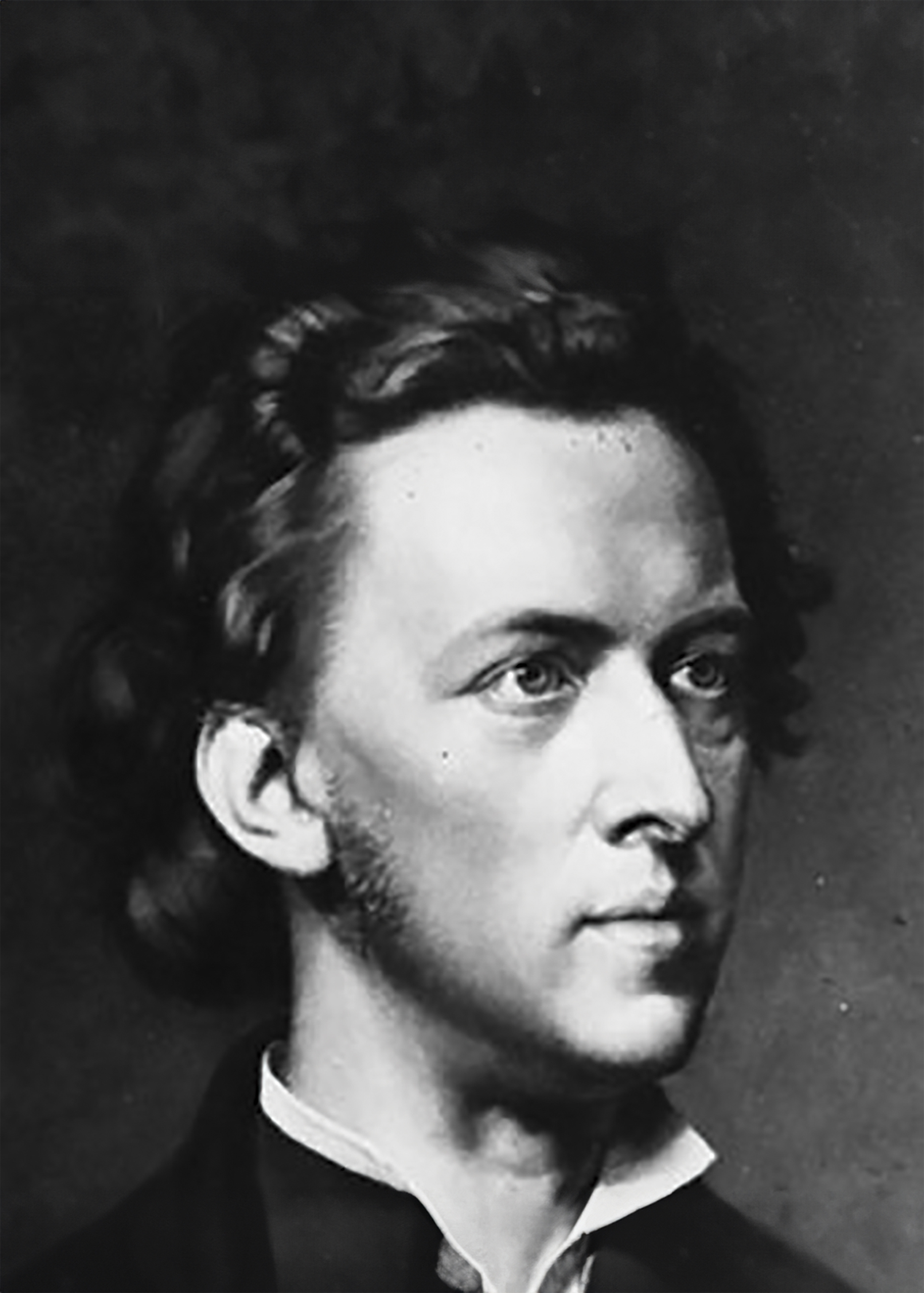Composer | Frédéric Chopin

To posterity, Chopin feels French, but he was born of mixed French-Polish parentage in 1810, when Poland was first a Napoleonic “Duchy of Warsaw” and then a province of Russia. From 1826 he studied at the Warsaw Conservatory, where his gifts were recognized (“remarkable talent”, “musical genius”) before fleeing his native country for Austria, Germany and France, following the brutal suppression of the 1830 Polish uprising, which inspired his Scherzo in B minor and Revolutionary Etude.
Hailed by Schumann (“Hats off, gentlemen! A genius”), the young composer and pianist was taken up by the wealthy Rothschilds, who introduced him to Mendelssohn, Berlioz, Liszt, Bellini, Heine and Delacroix, along with lucrative patronage offers, despite which, Chopin never became a lionised virtuoso, gave only rare concerts, travelled widely and devoted his energies to composition. “As a pianist”, a contemporary recorded, “Chopin was unique in acquiring a reputation of the highest order on the basis of… less than 30 concerts in his lifetime”.
Chopin’s 1836 secret engagement to Maria Wodzinski (which inspired major compositions) was followed by an affair with the Polish Countess Potocka and a series of successful concerts and compositions, before his meeting and relationship with the French writer Georges Sand, the lover of his friend Liszt. In his final years, Chopin’s popularity as a virtuoso waned and he left Paris for London, where his final concert was given in 1848 for the benefit of the Polish Revolutionary refugees
Chopin died in Paris in 1849 and is buried in Warsaw.